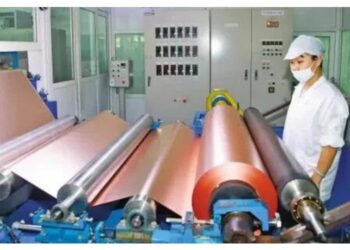The Ministry of Power (MoP) has issued the draft “Guidelines for Installation and Operation of Electric Vehicle Charging Infrastructure-2024”. These guidelines, effective from July 1, 2024, supersede all earlier versions released between January 2018 and April 2023.
The guidelines are applicable to electric vehicle (EV) charging infrastructure situated in privately owned parking spaces, semi-restricted areas like office buildings, educational institutions, hospitals, group housing societies, e-bus depots, as well as public locations such as commercial complexes, railway stations, petrol pumps, airports, metro stations, shopping arcades, municipal parking, highways, and expressways. The main goals of the new guidelines are to accelerate the adoption of EVs by ensuring the availability of safe, reliable, and accessible charging infrastructure. Furthermore, the aim is to establish fair service charges for EV charging, to aid in the development of EV charging infrastructure, and to prepare the electrical distribution system for integrating EV charging facilities.
According to the general provisions, any individual or entity can establish EV charging stations as long as they adhere to the guidelines. Distribution licensees must supply electricity connections for these stations within specific timeframes which encompass three days in metropolitan areas, seven days in other municipal areas, and fifteen days in rural areas. In rural areas with hilly terrain, the period extends to thirty days, and up to ninety days if new distribution mains or substations are required. Additionally, distribution licensees should develop user-friendly online single-window clearance systems to speed up the process of granting electricity connections. Charging stations must adhere to specific safety and operational standards, such as using proper cabling, implementing fire protection measures, ensuring rain protection, providing sufficient space, employing trained personnel, clearly marking parking spaces, and having systems in place for tracking usage, billing, and payments. Public charging stations should offer both prepaid and postpaid options for service charges, with time-of-day rates and discounts during solar hours.
The electricity tariff for EV charging stations will be a single-part rate, not surpassing the average cost of supply (ACOS) until March 31, 2026. During solar hours (9:00 AM to 4:00 PM), the rate will be 0.7 times the ACOS, and 1.3 times the ACOS during non-solar hours. Government and public entities are incentivised to offer land for public charging stations at discounted rates, starting at Rs 1 per kWh on a revenue-sharing arrangement over a ten-year period. The Bureau of Energy Efficiency will serve as the central nodal agency for overseeing the implementation of these guidelines. State nodal agencies and city authorities are tasked with regularly mapping the geographical distribution of potential EV charging demand and supporting the deployment of public, community, workplace, and e-bus depot charging stations.













